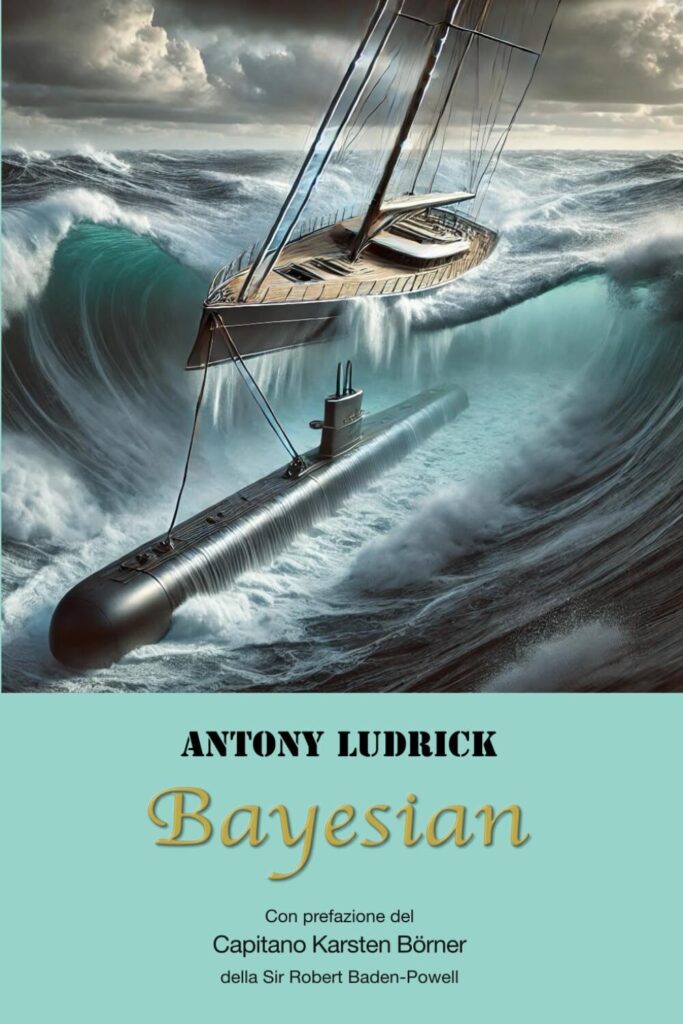 (AGENPARL) - Roma, 26 Aprile 2025
(AGENPARL) - Roma, 26 Aprile 2025In an uncanny twist of fate, the release of Bayesian, the latest novel by reclusive author Antony Ludrick, coincided with a real-life maritime tragedy involving a yacht bearing the same name. But what might seem like eerie premonition is, according to Ludrick, a case of narrative synchronicity — the kind of unpredictable alignment that mirrors the very themes his novel explores.
Bayesian is not merely a maritime thriller. At its core lies the philosophical and mathematical concept known as Bayes’ Theorem, a principle that suggests we should revise our beliefs in light of new evidence. Ludrick weaves this logic into his storytelling, inviting the reader to question every assumption as the plot unfolds. The line between rational deduction and emotional intuition becomes increasingly blurred, reflecting the dual nature of any true investigation, be it scientific or criminal.
Set against a backdrop of international intrigue, the novel draws in the shadowy presence of global powers, Russia, China, and the UK, whose interests intersect around a mysterious yacht sabotage. Ludrick’s attention to geopolitical nuance brings a chilling realism to the fictional events, though he insists the story is entirely imagined. Still, the detail is so convincing that readers often find themselves questioning where fiction ends and truth begins.
Ludrick himself is as enigmatic as the stories he writes. Living quietly on a Caribbean island, he composes all his work by hand, a method that harks back to a slower, more deliberate form of authorship. Now in his fourth novel, he continues to maintain a deliberate distance from publicity, letting the mystery of the narrative speak louder than the biography of the man behind it.
Yet Bayesian is not just a thriller. It is, in many ways, a meditation on uncertainty, a reflection on how humans respond to incomplete knowledge, unpredictable outcomes, and moral ambiguity.
The novel suggests that in a world increasingly shaped by algorithms and global instability, the greatest act of courage may lie in rethinking what we think we know.
One particularly poignant note: the foreword of Bayesian was written by Captain Karsten Börner, a seasoned mariner who, in a remarkable real world event, participated in the rescue of survivors from the actual yacht Bayesian. His contribution adds a deeply human dimension to a story already rich in meaning and metaphor.
Whether Bayesian is prophetic or coincidental, it stands as a compelling narrative about truth, perception, and the fine line that separates them, one that readers won’t easily forget.

